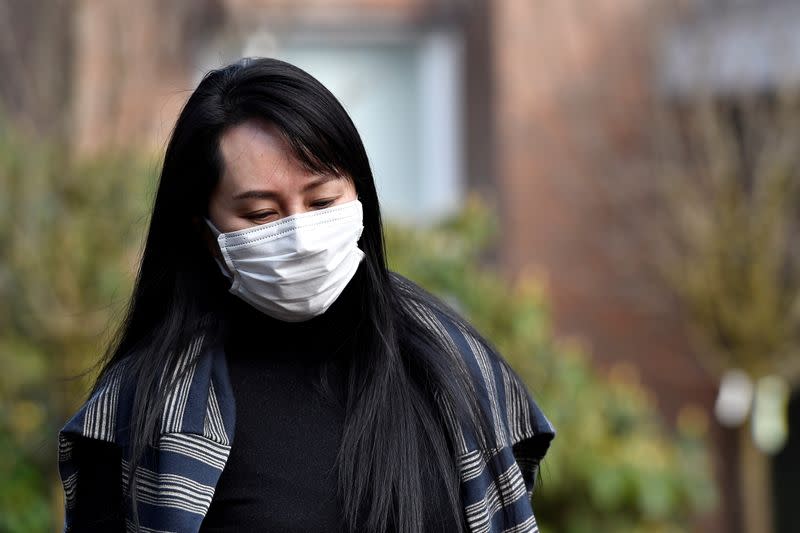By Moira Warburton
VANCOUVER (Reuters) – The Canadian judge in the case of Huawei CFO Meng Wanzhou’s extradition to the United States rejected her request to admit as evidence of statements by Huawei officials that contradict a US statement that she deceived bankers about the company’s business in the Iran, said a decision on Friday.
But the judge provisionally allowed parts of an expert’s report that Meng’s team requested to be allowed as evidence, subject to new claims about its relevance, showed the decision.
Meng, 49, was arrested in December 2018 at Vancouver International Airport under a U.S. warrant for allegedly misleading HBSC about Huawei’s trade talks in Iran and causing the bank to violate U.S. sanctions.
Since then, she has been battling the house arrest case in Vancouver and has said she is innocent.
The evidence that Meng’s team sought to add is related to the claim that HSBC knew about Huawei’s business in Iran and that Meng did not deceive the bank.
Two statements were from Huawei officials who attended the meeting at which the United States alleges that Meng lied about the company’s business connections in Iran.
Associate Chief Judge Heather Holmes of the British Columbia Supreme Court said that allowing this as evidence “could do no more than invite credible conclusions”, turning the case into “he said she”.
Holmes also rejected two further statements by Huawei employees, claiming that HSBC employees were aware of Huawei’s connections with companies in Iran, saying they were beyond the “proper scope” of an extradition hearing.
“The difficulty that Meng faces is that this body of evidence is related to issues within the domain of a trial, not the extradition hearing,” wrote Holmes.
Holmes provisionally allowed parts of an expert’s report on the application of U.S. sanctions law to financial institutions, saying it could address a potentially misleading aspect of US evidence. But she said more proposals would be needed to prove their relevance.
Meng is due to appear in court on Monday, when his case enters the final stage of argument, due to end in May.
Huawei did not immediately respond to a request for comment.
(Reporting by Moira Warburton in Vancouver; Editing by Leslie Adler and Cynthia Osterman)
